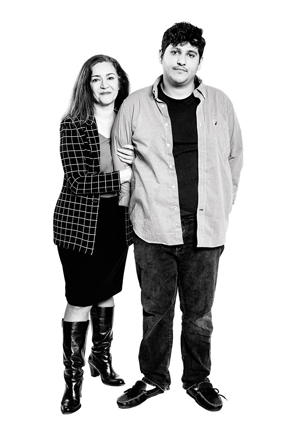
When Arzu Forough’s family moved to Washington in 2006, she knew her two sons would benefit from the University of Washington’s Autism Center. But Forough soon realized her health insurance didn’t cover her sons’ medically necessary therapies.
“Our out-of-pocket expenses were around $4,000 a month,” says Forough, who knew her family’s situation wasn’t unique. “I knew there were thousands of families in similar situations.” She decided to change that.
By 2011, this gentle-mannered mover and shaker had helped convince the Washington State Legislature to protect students with autism and other developmental disabilities. Her wins include a new training requirement for teachers who work with students with autism and a Medicaid waiver that brings intensive in-home behavior supports to children in need.
But Forough’s work is far from done. Inspired by the amount of need she saw — more than 800 families contacted her in 2010 alone— Forough created the nonprofit Washington Autism Alliance and Advocacy (WAAA) in 2012.
WAAA helps children and adults with autism spectrum disorder (ASD) and developmental disabilities to thrive in their own communities, so that families don’t have to relocate to receive medically necessary benefits, Forough says.
Since its founding, WAAA has helped thousands of Washingtonians access insurance benefits that allow them to get medically necessary care. The nonprofit helps 2,800 new families every year, and in 2015, helped pass a state policy that regulates the seclusion and restraint of students, including those with disabilities, in nonemergency situations.
Issaquah parent Kristin Jarvis Adams wishes Forough had been shaping policy when her 23-year-old autistic son was younger.
“Arzu has a soft and even voice, backed with an undeniable intelligence and desire to better the lives of children with autism,” Adams says. “[She wants to] make their communities good places to grow up within, too.”
And that, Adams says, is far from easy. “The required advocacy work for these children is so overwhelming that some parents give up,” she says. “WAAA created a framework for families to navigate the challenges of raising an autistic child. They walk alongside those families."
Forough is excited to keep expanding WAAA’s reach so that more families can receive the support they need. “The education experience continues to be difficult for a lot of students at different ends of the spectrum,” she says. “Our hope is to address that in a more robust way throughout our state."
What advice would you give a new parent of a child diagnosed on the spectrum?
Your child is the same wonderful child today who they were before you suspected autism or received a diagnosis. Although they need more support, they have the same needs as typical children, like friendship and belonging.
While navigating services, make sure you and your child have downtime. Share the joy of everyday activities and take lots of pictures. Sometimes we get caught up in the difficulties of life; I’ve experienced how easy it is to be in crisis.
What do you wish people knew about those who are on the spectrum?
I don’t think the general public knows how difficult it is to be in the body of a person with autism, what sensory bombardment feels like. There’s a reason why people are not looking you in the eye, why they might cover their ears or making noise to drown out noise. When we expect people to conform to the norm, we are forgetting there’s a reason why people behave this way.
What’s the most misunderstood part of your job?
The word 'advocacy' has a different meaning depending on the person and situation. In Olympia, we are advocating for similarly situated families who are working toward a common goal. Sometimes we are helping a specific person advocate for their school needs or within their health care system. In the home setting, we are teaching families how to coexist peacefully under the same roof.
What book saved you or changed your life?
The one book that really encouraged me to not be afraid to speak my mind and show my human frailty when I felt something was not right was On Becoming Fearless by Arianna Huffington. Also, once I committed to reading the very thick book In a Different Key: The Story of Autism, I learned about how much progress we’ve made and how much work is yet to be done.
If you could have one superhero power, what would it be and why?
I would love to be able to either be invisible or read minds. Often, we need to understand the other person’s perspective and be open-minded so we can build consensus.
What did you want to be when you grew up?
When I became a mother [her sons are now 20 and 19], I wanted to be June Cleaver, the happy homemaker. I didn’t want to be a working mother. I wanted to be the best cook and have the cleanest home. It didn’t quite work out for me, but I’m still waiting for it to work out.
If you could dine with anyone, living or dead, who would that be and why?
Aurore Dudevant. She pretended to be a man [George Sand] because she would not be taken seriously as a writer as a woman. I would love to learn what life was like then. Also, Albert Einstein, because I am so fascinated by his personal story and I really want to know what it would be like to be around him.
On a rainy Pacific Northwest morning, what gets you motivated and out of bed?
Aside from the smell of coffee, which my husband brews every morning, it really is the relationships I have with my colleagues. They are so much fun to be with that I really look forward to getting up and being around them.











